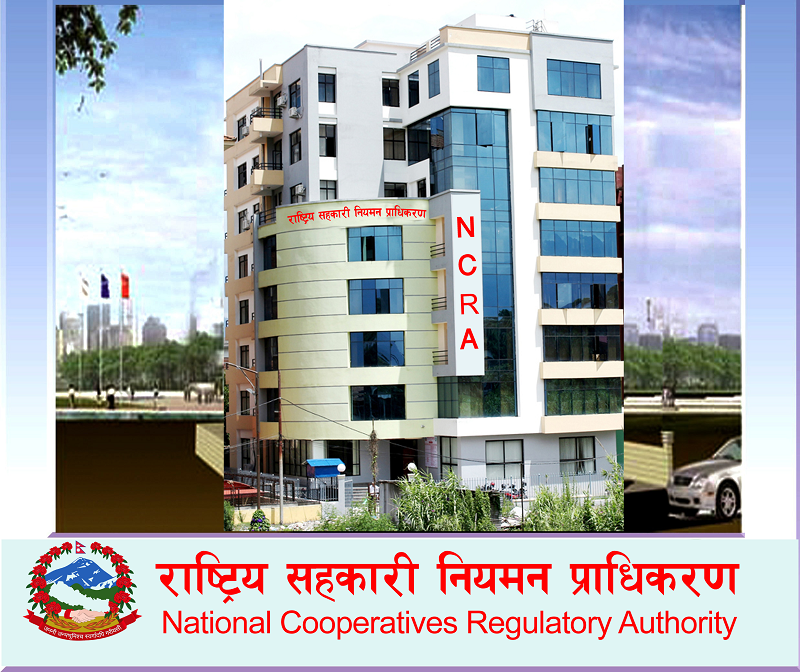Tighter Regulations for Cooperatives: Membership in Credit Information Center Now Mandatory
27th November 2025, Kathmandu
The National Cooperative Regulatory Authority (NCRA) has issued a stringent directive making it mandatory for cooperative institutions primarily engaged in savings and lending activities to become members of the Credit Information Center (CIC).
Tighter Regulations for Cooperatives
This move is a significant step toward enhancing regulatory oversight and improving the risk management framework within Nepal’s cooperative sector.
The authority issued a comprehensive circular to all relevant cooperatives, instructing them to comply with this new requirement immediately. This regulatory action is not merely a policy decision but is rooted in the statutory requirements of the Cooperative Act.
Legal and Regulatory Mandate
The directive is issued to enforce existing legal provisions that mandate the participation of financial cooperatives in the national credit information system.
Legal Requirement: According to Section 81 of the Cooperative Act, 2074 (as amended), cooperatives whose main business revolves around savings and loans are legally required to obtain membership in the CIC and regularly exchange credit-related information. This exchange includes details on borrowers, outstanding loans, collateral, and any instances of default or non-performing loans. The inclusion of cooperatives under the CIC’s purview reflects a growing recognition of their systemic importance, mirroring the regulation applied to banks and financial institutions.
Collaboration with CIC: The NCRA has been proactive in preparing for this enforcement. The authority conducted phased meetings and extensive discussions with the Credit Information Center to ensure ** technical and operational facilitation** is in place for cooperatives seeking membership. This preparatory work was crucial for smoothing the technical complexities involved in integrating hundreds of cooperative institutions into the national credit data system. Following these internal deliberations, the CIC requested the authority to formally assist all savings-and-loan-focused cooperatives in completing their membership formalities, signaling the readiness of the CIC’s infrastructure.
Mangsir 9 Decision: Based on the successful coordination and the CIC’s request, the NCRA’s board meeting, held on Mangsir 9, formally decided to call upon all cooperatives whose primary business is savings and lending to immediately register with the CIC. The subsequent circular acts as the formal instruction to implement this high-level policy decision, making the attainment of CIC membership a mandatory compliance requirement.
Importance of CIC Membership for Cooperatives
Membership in the Credit Information Center is a critical necessity for any institution involved in lending, as it directly impacts the ability to assess and manage credit risk, which is a major vulnerability for the cooperative sector in Nepal.
Risk Management: By becoming CIC members, cooperatives gain access to a consolidated database of borrower information. This allows them to conduct mandatory credit checks on potential loan applicants, significantly reducing the risk of lending to individuals who have defaulted on loans elsewhere (e.g., at commercial banks, microfinance institutions, or other cooperatives). This enhanced due diligence protects the savings of the cooperative members.
Credit Discipline: The mandatory exchange of information means that cooperatives must also report their own debtors to the CIC. This action promotes greater credit discipline among borrowers, as they know that defaulting on a loan from a cooperative will negatively impact their credit score and their ability to secure future loans from any financial institution, including banks and development banks.
Regulatory Harmonization: This directive helps to harmonize the regulatory standards between cooperatives and the broader banking sector, fostering financial stability across the entire system. It acknowledges the need for cooperatives to operate under the same high standards of risk management as other regulated financial institutions, especially those that have grown substantially in terms of assets and member deposits.
Implementation and Future Actions
The circular provides clear guidance on the next steps required for compliance by the cooperative institutions.
Application Process: The authority instructed that once the CIC officially issues the relevant information and application forms, cooperatives must promptly apply and complete the required procedures to gain their mandatory membership. The entire process is expected to be streamlined given the NCRA’s prior discussions with the CIC.
Facilitation Request: Furthermore, the NCRA has also taken an active role in pushing for smooth implementation by urging the CIC to facilitate cooperatives in acquiring their membership, recognizing that many smaller institutions may require additional technical support or guidance in navigating the registration and data submission process.
This enforcement action underscores the government’s commitment to strengthening the financial integrity and stability of Nepal’s cooperative sector, which manages billions of rupees in public savings and plays a key role in local economies.
For More: Tighter Regulations for Cooperatives







